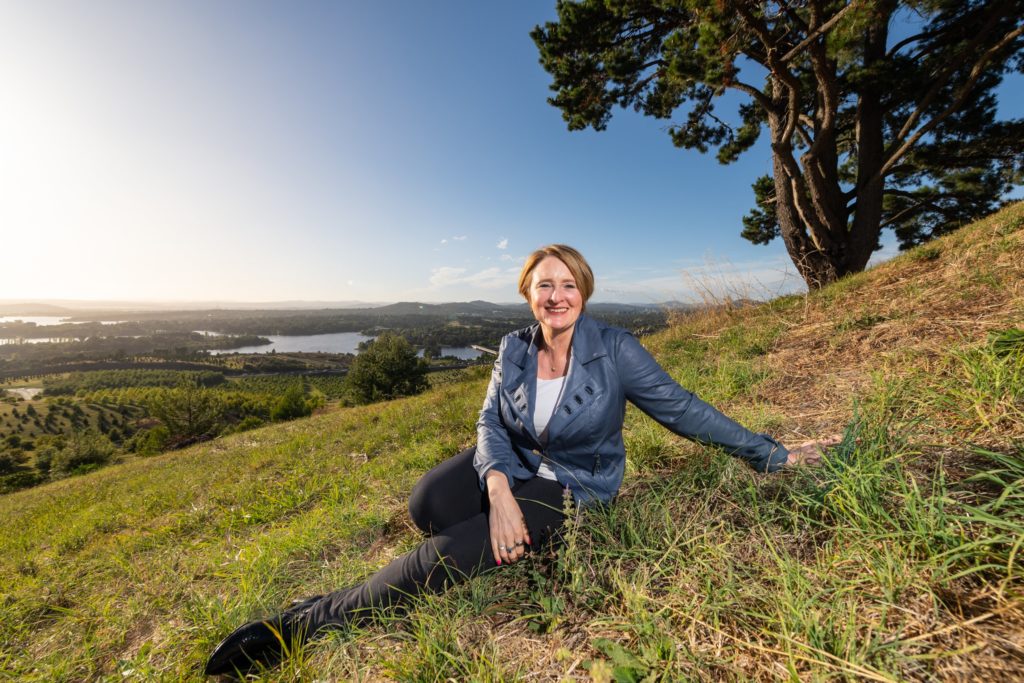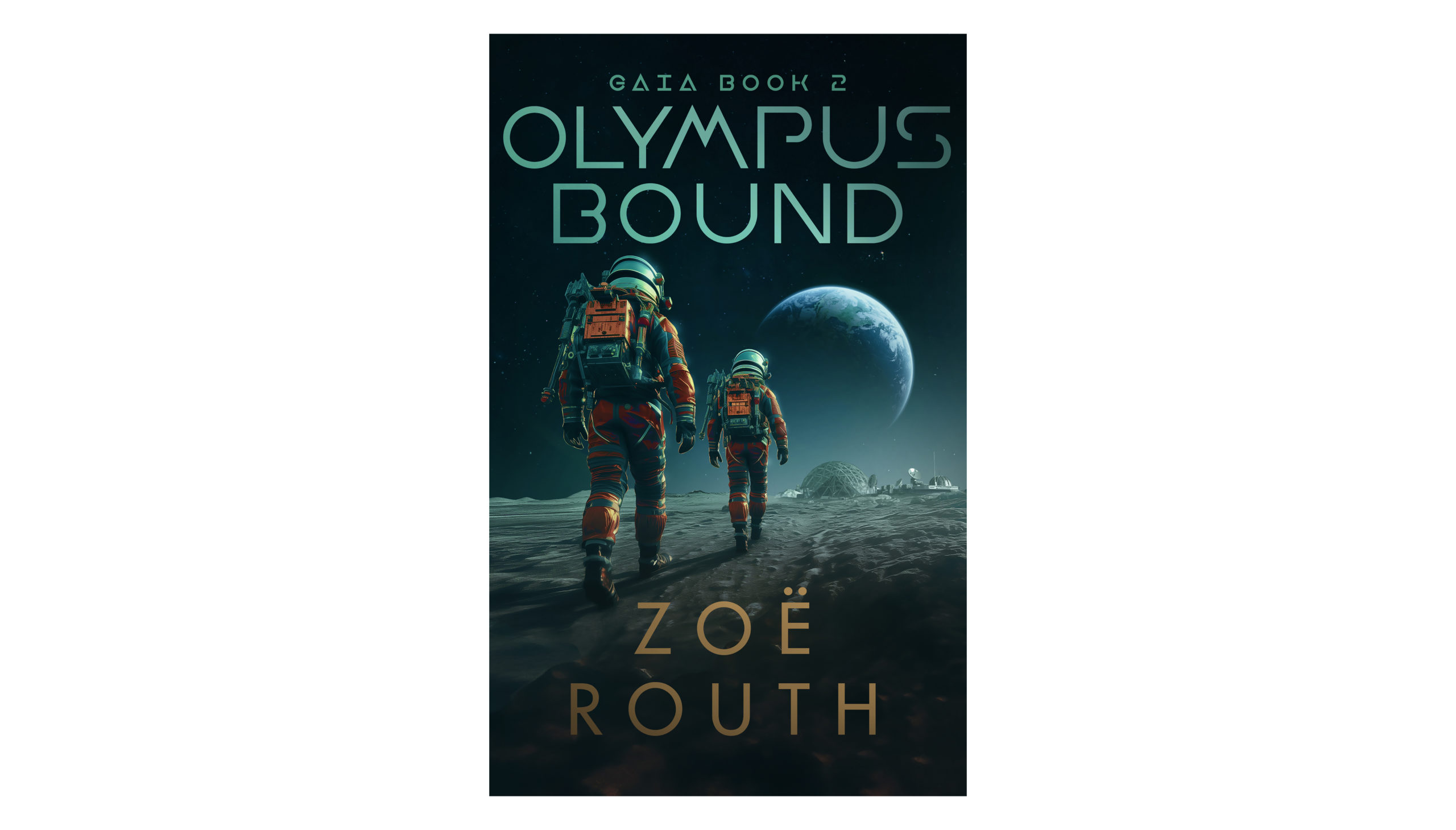In a time when the lines between science fiction and reality blur more each day, the Olympus Series emerges as a beacon of imagination, grounded in the plausible challenges and triumphs of humanity. Its author, renowned for weaving complex narratives that explore the confluence of leadership, environmental stewardship, and the boundless potential of human collaboration, offers us a glimpse into the creative expanse behind this captivating series. As we sit down for an exclusive interview with Zoe Routh, we delve into the mind of an author who not only dreams of new worlds but also inspires us to think deeply about our place and purpose within our own.
Questions:
1. Your series vividly portrays a world where leadership and innovative design play crucial roles in overcoming environmental and societal challenges. What inspired you to focus on these themes, and how do you see the role of visionary leaders and designers in our real-world future?
In my work as a leadership futurist, I am constantly casting my mind forward to what’s next, imagining how the trends will play out and what this will mean for the future of work, workplaces, and leadership. How will we live in a climate ravaged world? What will communities look like? How will this affect food production and tree/sea change migration along with climate refugees? What kind of leadership do we need to contend with these challenges, and are we ready for it?
Futurism is structured imagining. The story evolved from the questions that came from that forecasting. Visionary leaders are great question askers! From asking these questions we can start to design worlds worth living in.
2. In the Olympus Project, characters from diverse backgrounds and with unique talents come together to work on a groundbreaking project. What message do you hope to convey about collaboration and diversity through this storyline?
The cast is indeed diverse – called together from applicants around the globe. The core message on offer is ‘power is perspective’: the more we see, the better we lead. But it comes with challenges. Diversity is hard to navigate, and creating inclusion with different backgrounds, opinions, expertise is hard. Collaboration in these circumstances takes effort and commitment, but is better than the blind and narrow path of autocracy.

3. The concept of building new worlds, both on Earth and the Moon, is central to your series. Can you share your insights into the process of world-building in your writing? How do you balance scientific feasibility with creative imagination?
With research! My worlds are set in the near future, so radical new technologies don’t feature. The world-building is a bit like solving a puzzle: if we were to live on the Moon, what kinds of hardships might we encounter? What kind of problems might we have to solve? What are the risks? I followed quite a lot of space news and research to get an understanding of what is already being forecast and designed, and built from there. I extend out a little from existing experimental or hypothetical technologies and bring them alive in the books.
4. Characters in your series, such as Xanthe and Serena, face moral and ethical dilemmas, particularly when their personal beliefs clash with their professional ambitions. How do you approach writing these internal conflicts, and what do you believe readers can learn from them?
Leadership, and indeed being human, are not easy games. When we have a vision of who we wish to be and the world we wish to create, then we must constantly battle future aspirations with current realities, as well as human failings and fragilities. All of us walk with shadow. Great leaders face their shadow and wrestle with it. That’s what I want to show in my characters: they are beautiful and strong and flawed, just like the rest of us. If a reader can be encouraged to do their best and move forward even when they stumble, then I hope the books serve as an example and inspiration for them.
5. The series doesn’t shy away from discussing the environmental impacts and challenges of human endeavors. How did you research these aspects, and why was it important for you to include them in your narrative?
The natural world has always been central to my work. I led canoe trips across northwest Ontario in my twenties, then led outdoor experiential programs in Australia for some twenty years, and still lead bushwalking trips and run outdoor leadership programs now in my 50s. We are part of an eco-system, and for me nature is a central character in my visions for the future, for good or ill.
As a futurist, environmental trends have an impact on all other trends, including technology, industry, agriculture, social. I work hard at staying abreast of trends and events that will affect my clients and the worlds we are collectively creating.
6. Your characters, like Gina and Dr. Mohammad, have a deep connection to their roots and personal histories, which influence their decisions. How important is the theme of personal identity and heritage in your series, and how do you weave it into your characters’ development?
All of us have cultural roots that create a lens through which we see the world. This is both beautiful and limiting. It’s only when we start to explore these filters that we can see more of the humans and places around us. With multiple perspectives, we can start to see more of the whole. In terms of development, during our growth as leaders we must at some point confront the influences that have shaped us and choose to take the best parts and abandon what no longer serves. This is one of the most heart-wrenching and powerful things we can do, and so I take a few of my characters on that journey as they walk on the Olympus path.
7. The Olympus Project involves a blend of advanced technology and human ingenuity. Can you discuss the role of technology in your series and how you envision technological advancements shaping our future societies?
We like to see technology as a boon to humanity. We portray it as having an exponential positive impact. And yet, there is much to contend with. Those unintended consequences are what I like to explore in my novels. Some innovations seem straightforward and advantageous: holographic communication. Others, like humanoid robots with artificial intelligence, offer more potential for not yet explored impacts. One of my favourite technologies to explore is brain computer interfaces. This flags the evolution of a new type of human: an augmented one that goes beyond the prior cyborg integrations such as pacemakers and artificial hips. I am curious about how this will affect the biology of the person, as well as the psychology and interactions with others.
8. Finally, your series touches on themes of ambition, betrayal, and redemption. How do you maintain a balance between these darker elements and the more hopeful aspects of your narrative, ensuring that readers are engaged but not overwhelmed?
It’s all shadow and light. While we aim to build a utopia, we must never lose sight of the shadow elements of human nature that we always carry with us. It’s a constant discipline to rein in our baser impulses. Moreover, it requires courageous leadership to battle others who lead with self-interest at the expense of others. It’s the hopeful story that focuses on “all of us” and not just “more for some of us”. While it’s no easy path, it’s a self-transcending one that I hope captures the hearts and minds of readers.
As our journey through the Olympus Series with Zoe concludes, we are left with a profound appreciation for the intricacies of storytelling that challenge, inspire, and captivate. The series stands as a testament to the power of speculative fiction in sparking dialogue about our collective future, the environment, and the indomitable human spirit. With gratitude, we thank the author for this enlightening exploration into the worlds they have crafted and the thought-provoking reflections on our own. As readers and stewards of our planet, we are reminded that the future is not only a place we will go but one we are actively creating, guided by the light of our imagination and the strength of our resolve.
To discover more about the author and their visionary work, visit https://www.zoerouth.com/.



